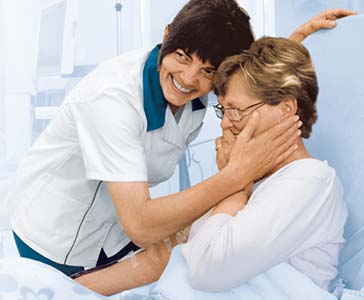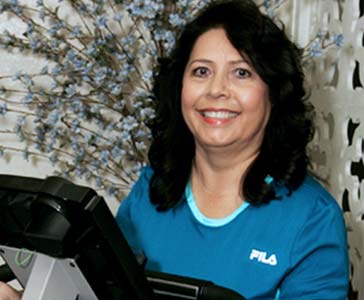Living with chronic kidney disease

When is dialysis needed?
Worldwide more than 2,500,000 patients undergo dialysis because of chronic kidney failure.
The stage of ‘kidney failure’ is reached when both kidneys stop, or have almost stopped doing their normal work (with less than fifteen percent of the kidney's normal functions remaining).
If kidney disease progresses to this stage, waste products from normal body functions and excess fluid (for example, from drinking) accumulate in the body. As a consequence, toxins and water must be removed from the body with a blood purification procedure. This procedure is what's called dialysis.
Chronic kidney failure is treatable. And there are three basic types of treatments available, depending on physical constitution and any underlying diseases: transplantation, hemodialysis, peritoneal dialysis.
Dialysis services and products
Thanks to the enormous medical advances in dialysis and dialysis machines, the “artificial kidney” is helping millions of people to continue enjoying long and agreeable lives, despite their disease.
Fresenius Medical Care is the world's market leader for renal replacement therapy, and so offers a full range of products and services that help patients living with kidney disease.

Enjoy life despite the illness
Although receiving a diagnosis of chronic kidney disease might at first be a shock, it also marks the beginning of a new chapter of life.
Although there will be changes in your life related to kidney disease and treatment, life will still, nonetheless, go on. Many people with chronic kidney disease have learned how to live their lives around dialysis treatments, despite the illness. And there are many resources, both professional and patient sponsored, that can give you helpful and supportive information and assistance in dealing with many of the challenges facing a person with kidney disease.
You can return to work, or continue education while on dialysis. If you dialyze in a hemodialysis center, you will be given a treatment schedule that accommodates your work or education schedule. Another alternative is home hemodialysis or peritoneal dialysis which allows for more flexibility and a freer schedule.
Nutrition and exercise
It's possible to still enjoy a meal out. And here your dietician can help you make informed choices when selecting from restaurant menus. You can return to many of the activities that you previously enjoyed before. Getting enough exercise, and keeping fit, is important for everyone. And that includes people with kidney disease.
Your illness may well be a daily challenge. But to keep control, three things are important:
- Keep a systematic check on your diet
- Keep physically active every day
- Work with your doctor and your patient care team – they are there to help and support you

Holiday dialysis
Undergoing dialysis three times a week does not have to mean an end to foreign travel and holidays.
“Holiday dialysis” gives patients the opportunity to visit other dialysis centres for treatment thus giving them the freedom to travel. All the dialysis centres in the NephroCare network are equipped to a comparable standard and offer the same high levels of quality.
By choosing one of our centres the patient will continue to receive the NephroCare service he is used to at home. The NephroCare team at his ‘home’ centre will make sure that the team at the holiday dialysis centre has all the medical and dialysis information they need. So the patient can concentrate on his holiday and enjoy himself!

